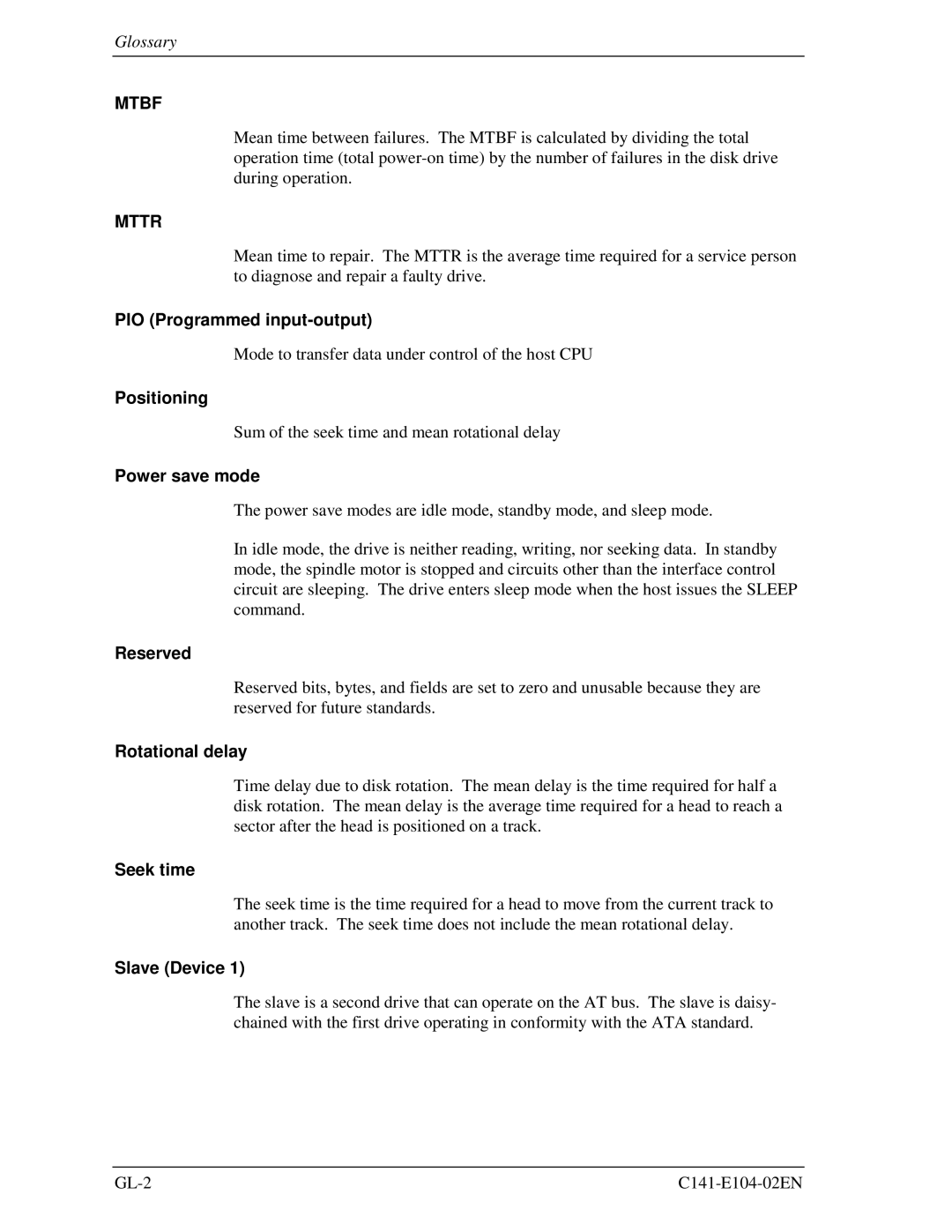MHM215OAT, MHM200AT, MHL2300AT, MHM2100AT specifications
Fujitsu, a leader in storage technology, has developed a range of hard disk drives designed for reliability and performance, catering to both enterprise and consumer needs. The Fujitsu MHM2100AT, MHL2300AT, MHM200AT, and MHM215OAT models are part of this impressive lineup, showcasing various features and technologies that set them apart.The MHM2100AT model is known for its 2.5-inch form factor, offering a storage capacity of 100GB. It operates at a speed of 5400 RPM, which balances performance and power efficiency. The drive utilizes ATA-6 interface (Parallel ATA) ensuring compatibility with a wide range of systems. One of its primary features is the advanced cache memory architecture, which allows for quicker access to frequently used data. This enhances overall system performance while preserving energy consumption.
The MHL2300AT provides a step up, with its 300GB of capacity. It also maintains a 5400 RPM speed and is designed for optimal heat dissipation and durability. This model is particularly suited for mobile computing applications due to its lightweight design and low power requirements. The MHL2300AT also integrates a sophisticated error correction code (ECC) technology, enhancing data integrity during storage and retrieval processes.
Moving on to the MHM200AT, this unit provides substantial storage of 200GB, maintaining a similar 5400 RPM speed. What sets the MHM200AT apart is its focus on data security with Built-in Security Features such as disk encryption capabilities. This model is suitable for professionals dealing with sensitive information, ensuring both performance and protection against data breaches.
Lastly, the MHM215OAT, another key model, balances user-friendly design with performance metrics. It offers a generous 150GB capacity and features an enhanced seek time for quick file access. With its emphasis on reliability, the MHM215OAT is often utilized in environments where uptime is critical, such as in commercial servers or high-performance workstations.
In conclusion, Fujitsu's MHM2100AT, MHL2300AT, MHM200AT, and MHM215OAT each possess unique features and technologies that cater to diverse user needs. Their combination of efficient power consumption, enhanced data integrity, and reliability make them compelling choices for businesses and individuals alike. Whether for mobile devices, personal computing, or enterprise applications, these models continue to exemplify Fujitsu's commitment to quality and performance in storage solutions.

